Kendall College’s Hedeker Earns Master-Baker Certification from RBA
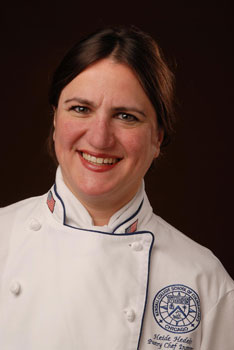 Kendall College is pleased to announce that Heidi Hedeker, MA/MSW, a baking and pastry instructor and assistant professor in the School of Culinary Arts, earned her master-baker certification (CMB) from the Retail Bakers of America (RBA) during practical testing at The Culinary Institute of America in Hyde, Park, N.Y., in October. She is the second CMB teaching at Kendall College.
Kendall College is pleased to announce that Heidi Hedeker, MA/MSW, a baking and pastry instructor and assistant professor in the School of Culinary Arts, earned her master-baker certification (CMB) from the Retail Bakers of America (RBA) during practical testing at The Culinary Institute of America in Hyde, Park, N.Y., in October. She is the second CMB teaching at Kendall College.
Hedeker’s most-recent accomplishment makes her one of only 169 Certified Master Bakers in the United States. In addition to Hedeker, Kendall College is also home to CMB baking and pastry instructor Melina Kelson-Podolsky, who earned her master-baker certification in 2008.
A CMB must have deep expertise and proven skills in a broad range of baking environments, as well as the technical and administrative ability needed to operate and manage the production area of a full-line independent or in-store commercial bakery. The rigorous requirements, which include the principles of sanitation, food management, retail sales and merchandising in addition to the fundamentals of high-quality baking, make the CMB designation one of the most challenging in the culinary field.

 Institute of America (CIA) and its faculty earned seven first-prize awards and two Best of Show honors at the 144th Salon of Culinary Art during the International Hotel/Motel & Restaurant Show in New York City on November 12.
Institute of America (CIA) and its faculty earned seven first-prize awards and two Best of Show honors at the 144th Salon of Culinary Art during the International Hotel/Motel & Restaurant Show in New York City on November 12.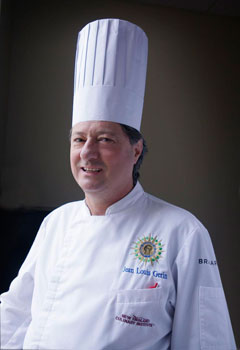 The New England Culinary Institute, Montpelier, Vt., announced Nov. 1 that its vice president of culinary operations and executive chef, Jean-Louis Gerin, has been recognized in the premiere listing of Partners and Alumni of the Culinary Research and Education Academy (CREA).
The New England Culinary Institute, Montpelier, Vt., announced Nov. 1 that its vice president of culinary operations and executive chef, Jean-Louis Gerin, has been recognized in the premiere listing of Partners and Alumni of the Culinary Research and Education Academy (CREA).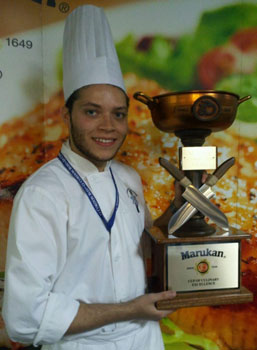 Le Cordon Bleu College of Culinary Arts in Las Vegas was proud to host the inaugural Marukan Cup of Culinary Excellence sponsored by the Marukan Vinegar Company in October. Teams from four Le Cordon Bleu schools participated in the competition, including a student and a chef instructor/coach from each of the Chicago, Dallas, Las Vegas and Los Angeles schools.
Le Cordon Bleu College of Culinary Arts in Las Vegas was proud to host the inaugural Marukan Cup of Culinary Excellence sponsored by the Marukan Vinegar Company in October. Teams from four Le Cordon Bleu schools participated in the competition, including a student and a chef instructor/coach from each of the Chicago, Dallas, Las Vegas and Los Angeles schools.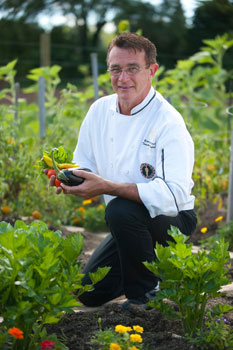
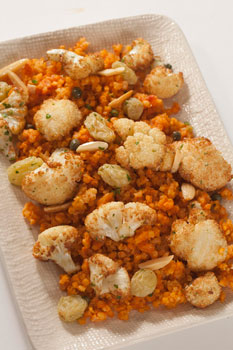 Look for noodles of all stripes to show up in hearty layered bowls on menus. We’ll also see mainstreaming of South American-style grilled meats and Latin-Asian fusion seafood dishes. And, African peri-peri chicken should take flight.
Look for noodles of all stripes to show up in hearty layered bowls on menus. We’ll also see mainstreaming of South American-style grilled meats and Latin-Asian fusion seafood dishes. And, African peri-peri chicken should take flight.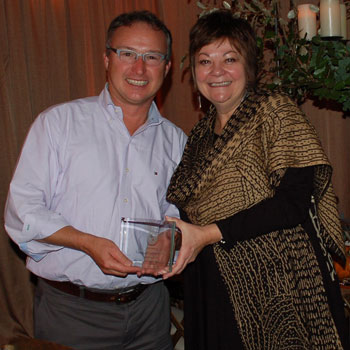 Passion for fresh, seasonal, straightforward ingredients and cooking; diversity and flexibility of service; and leveraging meal occasions to build community among students and staff are hallmarks of the dining program at Vanderbilt University in Nashville.
Passion for fresh, seasonal, straightforward ingredients and cooking; diversity and flexibility of service; and leveraging meal occasions to build community among students and staff are hallmarks of the dining program at Vanderbilt University in Nashville.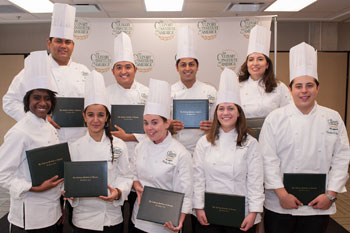 Inaugural seven-month program concludes with ceremony and celebratory meal at San Antonio campus.
Inaugural seven-month program concludes with ceremony and celebratory meal at San Antonio campus.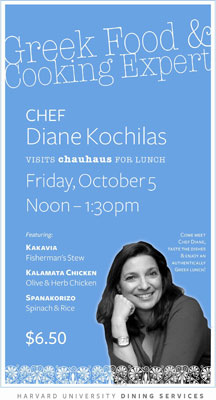 The country’s oldest collegiate foodservice operation partners with a noted authority to meet student demand for cuisine authenticity.
The country’s oldest collegiate foodservice operation partners with a noted authority to meet student demand for cuisine authenticity. Saying that five times fast led to a college student’s likeness in Darigold butter.
Saying that five times fast led to a college student’s likeness in Darigold butter.